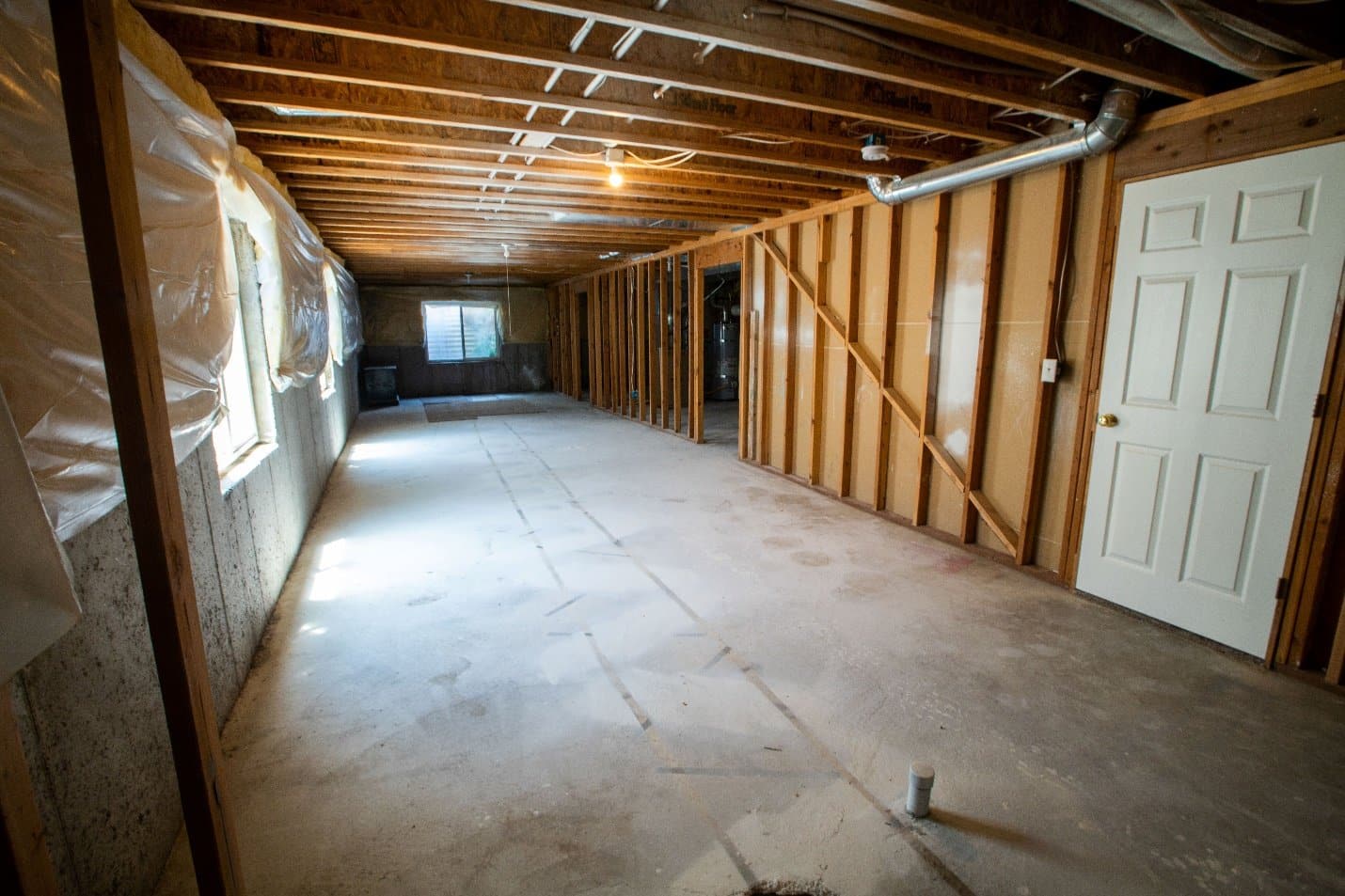Your basement is more than just the foundation of your home; it’s a valuable space that can serve various purposes, from a cozy family room to a functional home office. However, to make the most of your basement, proper insulation is crucial. In this blog post, we’ll delve into the importance of insulating your basement, not only to keep comfort in but also to keep moisture out.
Contents
Why Basement Insulation Matters
Temperature Control
One of the primary reasons for insulating your basement is temperature control. Basements tend to be cooler than the rest of your home, especially during the colder months. Proper insulation helps maintain a consistent and comfortable temperature, making your basement a usable living space year-round.
Energy Efficiency
Insulating your basement can significantly improve your home’s energy efficiency. By reducing heat loss through the foundation walls and floor, you’ll lower your heating bills and reduce your carbon footprint.
Moisture Prevention
Basements are prone to moisture issues, which can lead to mold, mildew, and structural damage. Insulation acts as a barrier against moisture, helping to keep your basement dry and safe.
Noise Reduction
Insulation also provides a sound barrier, preventing noise from traveling between floors. This is especially important if you plan to use your basement as a home theater, office, or a quiet retreat.
Types of Basement Insulation
When it comes to insulating your basement, there are various options to consider:
**1. Fiberglass Insulation
Fiberglass insulation is a popular choice due to its affordability and effectiveness. It can be installed in the walls and ceiling of your basement, providing thermal resistance and moisture control.
**2. Spray Foam Insulation
Spray foam insulation is a versatile option that provides an airtight seal. It’s perfect for sealing gaps and cracks in the basement walls and floor, preventing both moisture and air infiltration.
**3. Rigid Foam Insulation
Rigid foam insulation boards are moisture-resistant and can be installed on the interior or exterior of your basement walls. They offer excellent thermal resistance and moisture control.
**4. Insulated Wall Panels
Insulated wall panels provide a quick and efficient way to insulate your basement walls. They often come with built-in moisture barriers and can be installed directly over existing walls.
Professional Installation Matters
While some homeowners may opt for DIY insulation projects, it’s essential to consider professional installation. Basement insulation requires careful consideration of moisture control, proper sealing, and local building codes. A professional contractor like Utah Basement Finishing can ensure that your basement is insulated correctly, providing maximum comfort and protection.
Conclusion
Insulating your basement is an investment that pays off in increased comfort, energy savings, and protection against moisture issues. Don’t overlook this essential step when finishing or renovating your basement. At Utah Basement Finishing, we specialize in creating comfortable and functional basement spaces. Contact us today at 801-669-8106 or visit our website here to learn more about how we can help you insulate your basement and make it a valuable part of your home. Keep comfort in and moisture out with Utah Basement Finishing.




